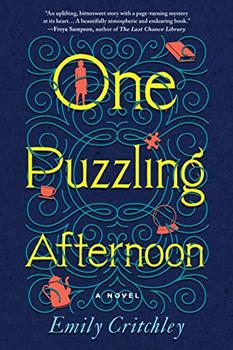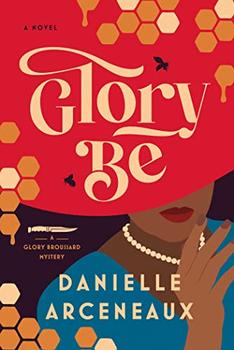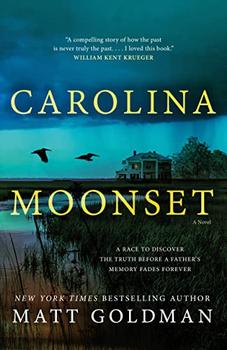Summary | Excerpt | Reviews | Beyond the book | Read-Alikes | Genres & Themes | Author Bio

A Novel
by Emily CritchleyWhile British author Emily Critchley's graceful novel One Puzzling Afternoon is about cognitive deterioration, the story's beauty is in how it elegantly unpacks memory, friendship, and regret. It embraces the painful experience of dementia, its relentless ride through the grays of the world when colors have long ago disappeared.
Edie is in her eighties, has lived in Ludthorpe, England all her life, and has a "foggy brain." It's a struggle to remember day-to-day details and she resents her loss of independence. That a woman named Josie, hired by her family, comes to help with household chores is one more thing to bristle at, but Edie's reaction is layered. When she feels like herself, she knows the feeling won't last.
One day, during a bout of fogginess, she sees her teenage best friend Lucy standing in front of the post office exactly as she was in 1951. But seeing Lucy isn't possible. She disappeared at the age of sixteen, when British girls either left school for jobs and a husband or continued with their education, perhaps to train to become a teacher. Before she could make that choice, Lucy vanished and was never found, despite a dwindling number of searches and posters and trying. Edie believes that seeing her friend is an inheritance: Edie's mother Nancy was a grocery clerk by day and a medium at night.
Critchley prioritizes the polar ends of Edie's life in alternate chapters, showing the teenager Edie in 1951 and the aged Edie in 2018. As a teenager, she is mostly an outsider, someone with few friends who is often called "freak." She is shy and insecure and punished for how her mother makes money. One ordinary day, Edie, who suffers from forgetfulness, realizes she left a tea tin in one of her classes and she goes back to retrieve it. Upon entry, when mostly everyone has gone home, she sees something forbidden, a secret that tall, popular, perfect Lucy Theddle, the mayor's daughter, begs Edie to keep and that creates an unlikely bond between the two girls.
Decades later, Edie is lonely and confused. She wakes one morning and truly believes that Lucy is in trouble. Desperate to save her, she walks to the house where her friend once lived with her wealthy parents only to discover new owners in residence. Feeling sorry for Edie, they allow her inside despite the interruption of breakfast with their children. It is there that Edie looks down at herself and notices she is in her nightdress; she didn't bother to wash and put on decent winter clothes.
One flaw of this bittersweet story is that it doesn't make the distinction between old age and dementia. There is a sense that Edie's brain is a mess because she is older instead of because of her addled neurons. She has a disease.
Despite this, One Puzzling Afternoon is a page-turning, enjoyable, easy read. The quaint portrait of a small village not far from London with its shops and bakeries and the British Red Cross is the sweet part of the story. That Lucy disappears in such a place magnifies the mystery. Where did she go?
Critchley leaves nothing undone and nothing to guess at later. Her pacing is exceptional as she unpeels Edie's story, which is also the story of Nancy. All the pieces fit neatly. Lucy's wealth and status. Edie's insecurity and strange mother. Lucy's stepfather, a bully of a man, the only man Lucy truly loathes. And the secret that keeps two girls bound to one another.
The sadness of the story comes into play with the brain and the things it does to those with dementia. As bemusing and sweet as Edie can be, as gentle and tender, she's losing her memories and her sense of time and place, and it's painful to experience, even for the reader, painful yet familiar for many of us. Having parents or grandparents who can no longer remember where they know us from is heartbreaking. One Puzzling Afternoon is an honest portrayal of a woman's absent memory. Despite its fictional telling, it feels, almost, like a warning of what may happen to those we love.
![]() This review
first ran in the November 15, 2023
issue of BookBrowse Recommends.
This review
first ran in the November 15, 2023
issue of BookBrowse Recommends.

If you liked One Puzzling Afternoon, try these:

by Danielle Arceneaux
Published 2023
The first in a vivid and charming crime series set in the Louisiana bayou, introducing the hilariously uncensored amateur sleuth Glory Broussard. Perfect for fans of Richard Osman's Thursday Murder Club series.

by Matt Goldman
Published 2022
Both suspenseful and deeply moving, Carolina Moonset is an engrossing novel about family, memories both golden and terrible, and secrets too dangerous to stay hidden forever, from New York Times bestselling and Emmy Award–winning author, Matt Goldman.
Your guide toexceptional books
BookBrowse seeks out and recommends the best in contemporary fiction and nonfiction—books that not only engage and entertain but also deepen our understanding of ourselves and the world around us.